After spending yet another few hours in a beautiful Japanese café, I went home to do nothing, really. The sun was shining, the sky was blue, and the temperatures felt more like summer than early spring. It was too nice outside to waste the last hours before work inside the apartment.
So, after finishing the chapter I was reading, I went outside again for a walk in the sun. In the area where I live, there are a number of cherry blossom trees lining the streets and the river. In some places, a street railway splits the road in two, again surrounded by the trees. It’s a beautiful sight, even with the branches still partially bare, not yet adorned with their flowery coat. These are the white kind that bloom later than the pink ones. But the first blossoms had already begun to open, turning the streets into a picturesque setting.
I walked past the water, stopping in my tracks to admire one tree after another. I spent most of my time in front of the ones that already wore their blooming glory with pride—early risers, crisp and white.
There weren’t many people around. An old man here, an old woman there. Watching them do as I did—walking a few steps, only to pause and take a picture of the trees—made my heart ache. It made me wonder if I would still feel this same sense of awe after decades of walking these streets, experiencing this season year after year.
Of course, I can’t answer that with full certainty, but I do think I would be just as entranced as I am in this very moment. How could you ever grow tired of a sight like this? How could you ever think, “Okay, I’m done with cherry blossom season. Been there, done that”? It’s one of those things that simply isn’t possible.
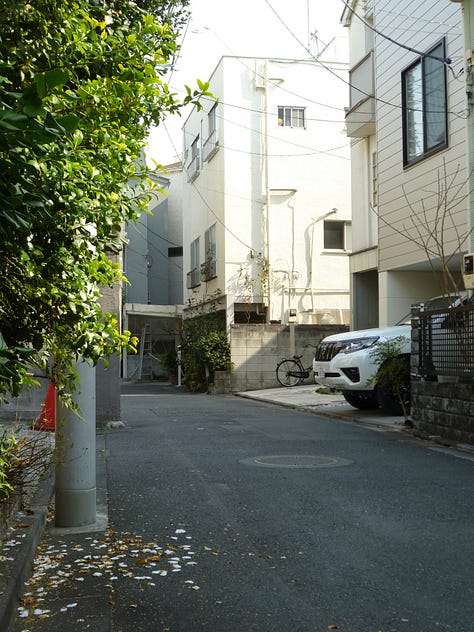

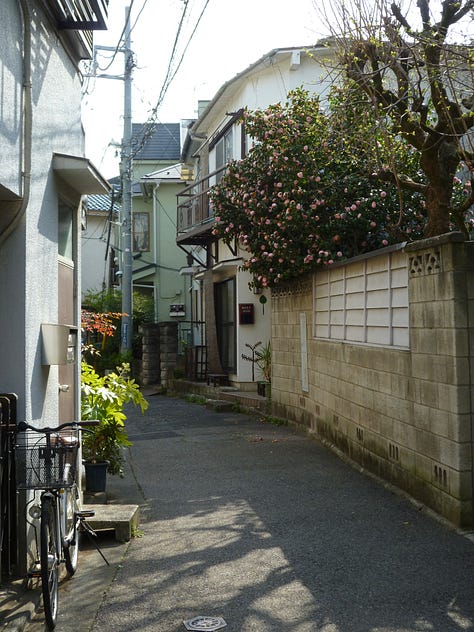
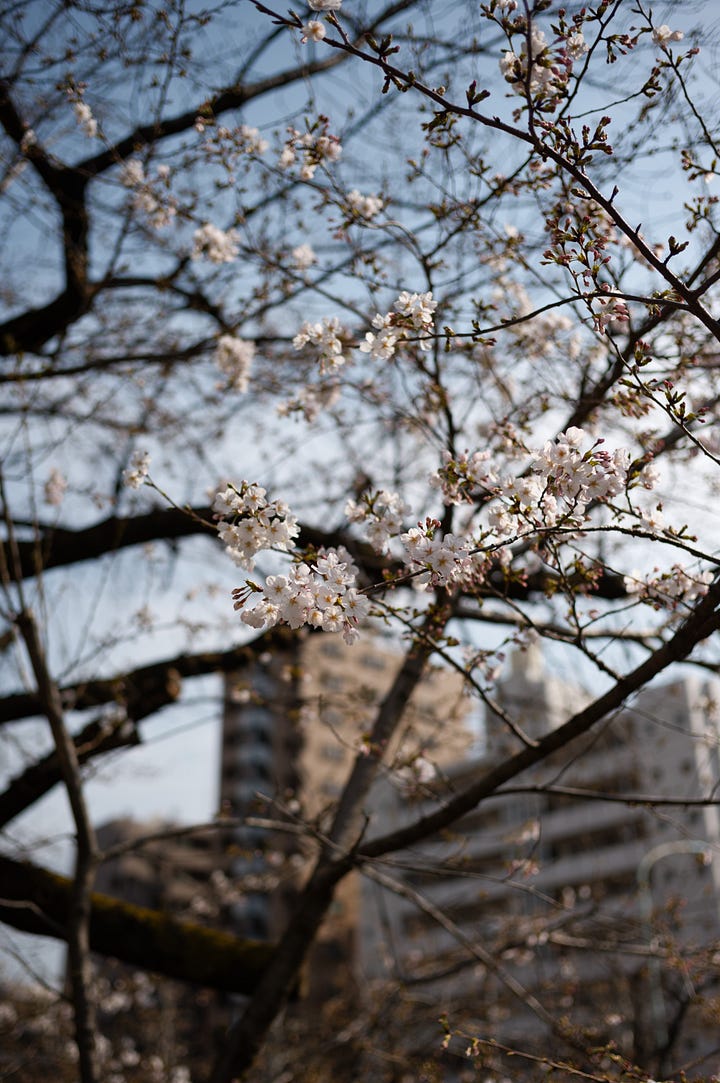
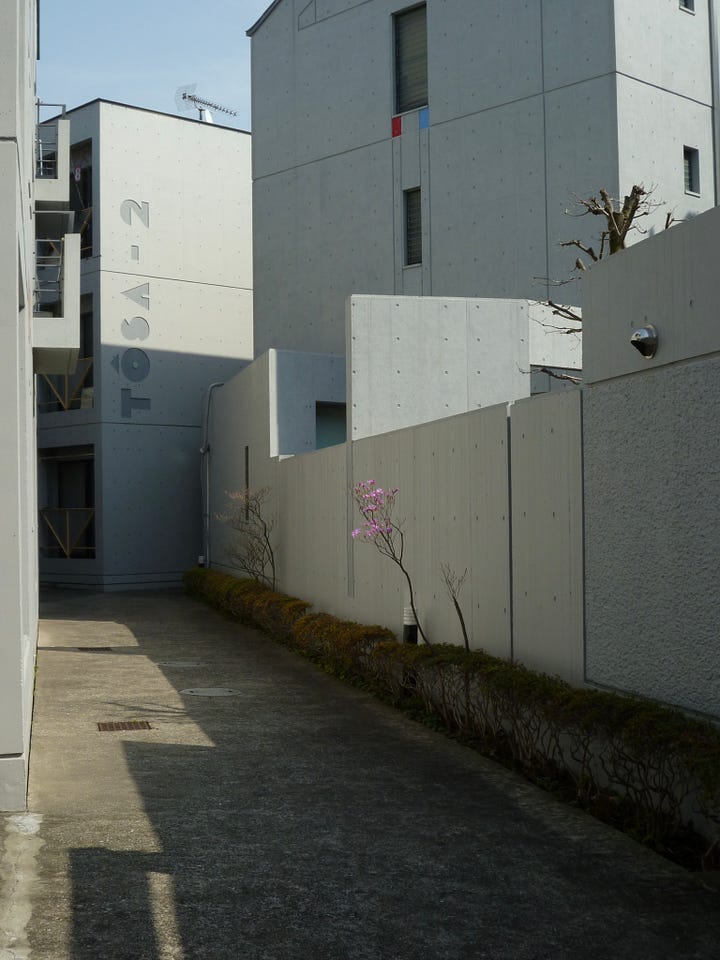
As I walked past an old Japanese house that couldn’t have looked more stereotypical, I noticed that the garden gate was open. Just days before, you could only assume what was hidden behind it. Now, it was in full view. I tried to take a look without seeming like a nosy or disrespectful gaijin. But as soon as I heard some shuffling, I quickly continued my walk, acting as if nothing had happened. A Japanese woman followed me out to the street. Our eyes met, and I felt embarrassed, offering a half-bow—a habit I’ve picked up to the point that I probably bow a hundred times a day, sometimes even in situations where I should do the exact opposite.
She invited me into the small garden in front of the house and explained that they had opened a little tea house for a short period of time. I felt proud because this had been my initial thought when I saw the now open entrance. She asked me to visit in the next few days before they would close again for another year.
My heart was racing. I felt humbled and grateful to receive an invitation like that. I immediately reserved a spot for the following day, thanked her a million times (bowed a few more times), and left with a giddy feeling.
When I woke up today, it felt like I was going on the most special date. I put on a sparkly dress and cute socks and practically floated on clouds. My husband and I arrived and were brought to a small Japanese table called a zataku. We sat down on the tatami mat and looked out the windows, which were at eye level, framing a view of white cherry blossoms and cedar trees. A few of the other tables were already taken, with pairs of people speaking in hushed tones. It smelled like an old wooden house, calming and sweet. When our matcha and Japanese sweets were brought to us, we thanked them with a bow, trying to contain our excitement.
It was such a simple experience, yet one of my highlights so far. Being invited to such a special place, knowing there were only a limited number of seats and time slots, felt like the biggest gift. The matcha was perfect—pure, with the slightest bitterness that perfectly balanced the sweetness of the bean-filled treat.
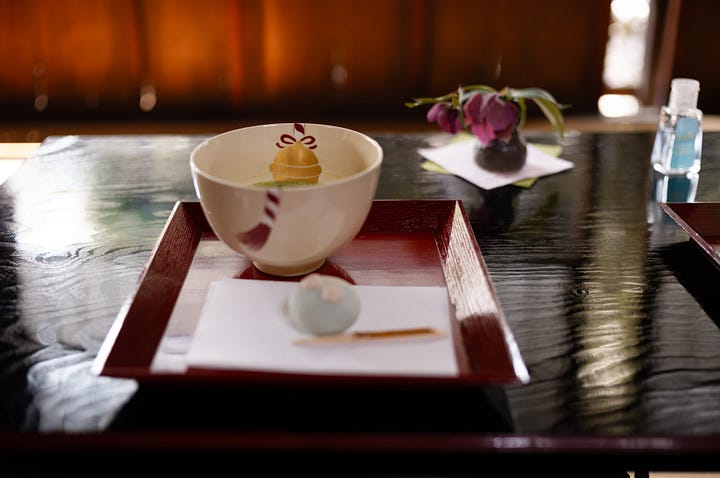
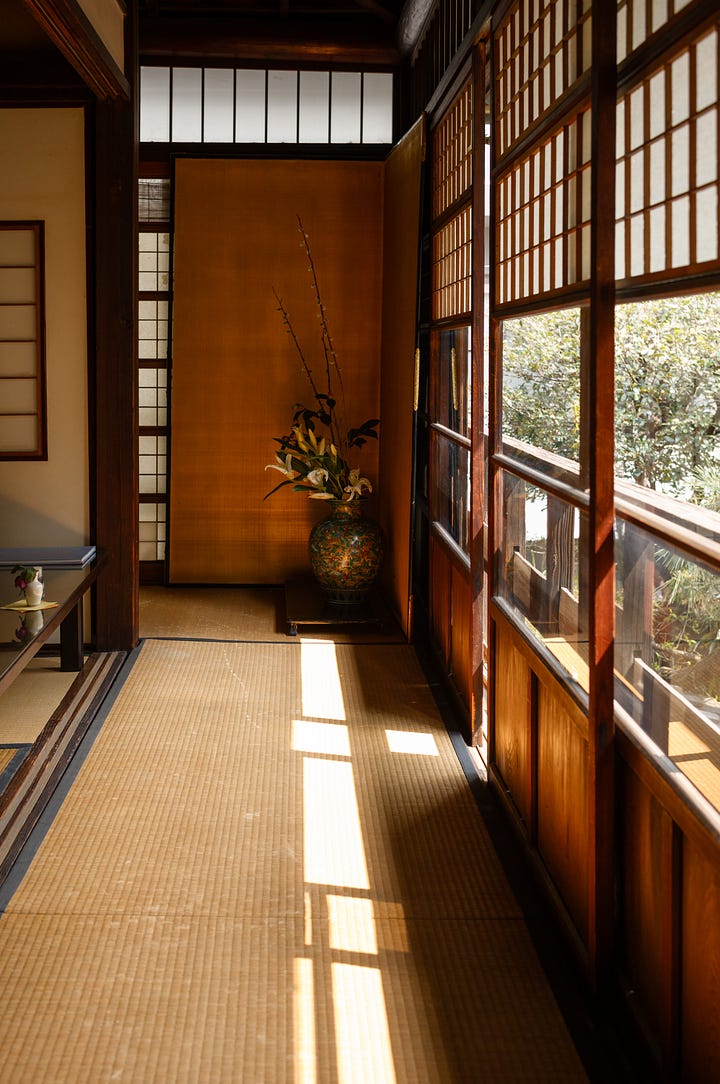
Again, just like on the streets the day before, I did as the other visitors did: I took pictures of the view, my tray, and the flower arrangements. Even though we were separated by language, we all understood that this was a special moment. We tried to hold on to it, to take it with us, by capturing it.
One hour of few words, of sweet and bitter flavors on my tongue, and a full heart.
When we left, the daughter of the owner—whose teenage sons were also helping in the tea house—walked us out, asking us questions and stretching this beautiful experience with small talk.
I had goosebumps as we left the tea house, feeling excited, happy, and grateful. We continued our walk to a nearby park, reading in the shade of trees that shielded us from some of the heat. We had walked up a small hill, giving us a view of the park below, with the city skyline in the background.
Beside our bench, a man sat sketching the landscape. I imagined striking up a conversation, asking him about his life. Of course, I didn’t. I still worry about the language barrier and the possibility of making someone uncomfortable. He looked so immersed in his pencil strokes—maybe it was the right choice not to interrupt his moment of solitude.
The wind rustled the trees, a few cars passed in the distance. The world was quiet. Or rather, as quiet as nature allows.
And in that stillness, I realized—this was a moment I had to share with you.
Because it was simple yet special. And because it was a reminder that when you walk your path with openness, you might receive an invitation that otherwise would never have come.
Thank you for reading. またね.


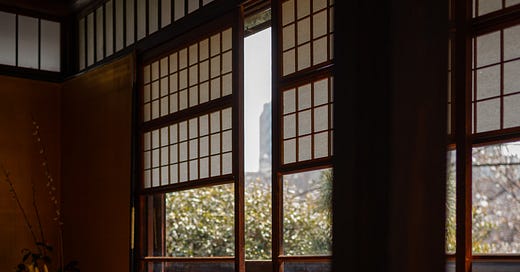





This is beautiful, Martina. I am so glad I read it! It encapsulates so much of what I believe about life: our shared longing for beauty, the blessings that come with openness, the generosity of both nature and humanity, the honor and privilege of bowing to the gifts that come to us, the connections we make with strangers, the knowledge that aging may change our bodies but not our higher selves...
Thank you so much - arigato gozaimasu - herzlichen Dank - muchísimas gracias!
I feel like I was there too experiencing the peacefulness of the moment 🍵🍡